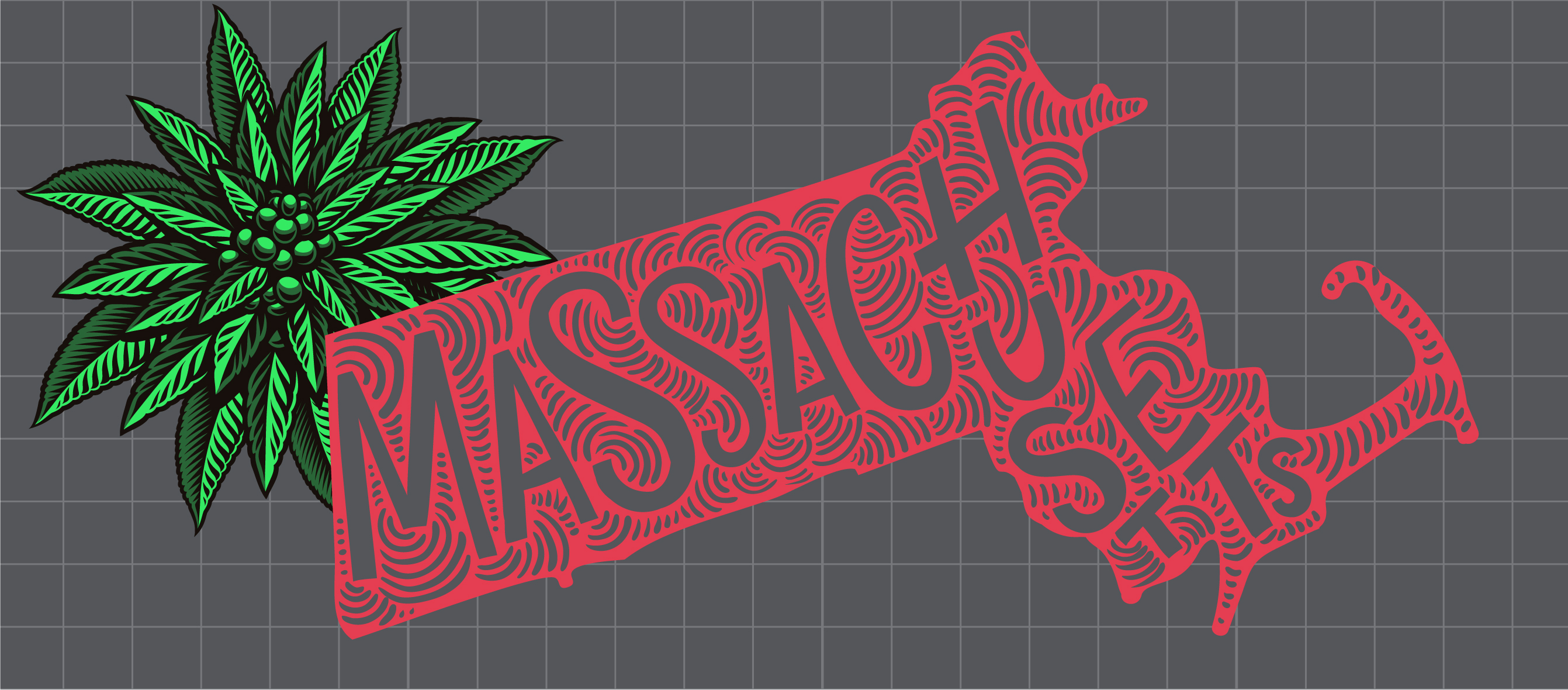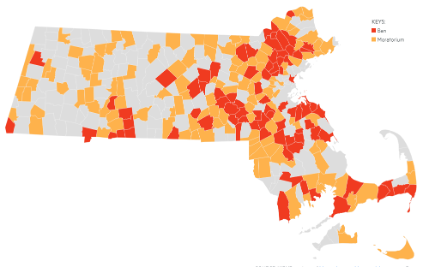On the morning of August 1st, 2022, both Massachusetts House and Senate announced they have passed a cannabis compromise legislation that would make significant changes to the state’s booming cannabis industry, setting up a more equitable environment. This long-awaited measure is set to take on some of the biggest challenges in industry reforms.
The Bay State has come a long way since becoming the first U.S state to criminalize recreational cannabis a century ago, to being one of the forefront states to pave the way for the nation’s cannabis industry.
HISTORY OF MASSACHUSETTS CANNABIS
Here is a summary of milestones through the history of cannabis in the Commonwealth of Massachusetts:
1911 – The sale of cannabis without a prescription becomes illegal.
2008 – Possession of small amounts of cannabis is decriminalized.
2012 – Medical cannabis is legalized.
2016 – Recreational cannabis is legalized.
2018 – The first retail Massachusetts retail cannabis shops open.
The legalization in the State of Massachusetts came in stages, starting with decriminalization, followed by passing a medical bill before adult-use recreational legalization.
The Bay State was the very first state to restrict cannabis on a state level in 1911, outlawing the sale of “Indian hemp” without prescription. This was then followed by the ban in California in 1913, leading into the finalizing of the Uniform Narcotic Drug Act by the Federal Government in 1932 and the Controlled Substances Act in the 70’s.
On November 4, 2008, the Massachusetts voters passed the Sensible Marijuana Policy Initiative, also known as Massachusetts Ballot question 2, replacing prior criminal penalties with new civil penalties on adults possessing one ounce or less with a fine of $100 without criminal record. Before decriminalization, people charged faced up to six months in jail and a $500 fine. The law went into effect in January 2009.
The era of regulated cannabis in Massachusetts began three years after decriminalization went into effect. On November 6, 2012, 63% of the Commonwealth voters approved Question 3, the Massachusetts Medical Marijuana Initiative, allowing the medical use of cannabis for serious health conditions with a registered medical card to access state-regulated centers up to 60-day supply of cannabis and in some cases, grow themselves. This initiative was then put into law as Chapter 369 of the Acts of 2012, An Act for the Humanitarian Medical Use of Marijuana, which was subsequently repealed and replaced by An Act to Ensure Safe Access to Marijuana.
Adult-use recreational legalization came into the picture in the 2016 November 8th election, when the Commonwealth voters approved a ballot initiative (Question 4) with nearly 54% voting in favor, legalizing recreational cannabis. Provisions for home use and cultivation went into effect on December 15, 2016, where adults aged 21 and older are allowed to possess and purchase up to one ounce in person and 10 ounces at home, with household allowed to grow up to six plants per person.
However, recreational sales had met a snag when then Governor Charlie Baker and Massachusetts state lawmakers voted to delay recreational sales while the legislature rewrites the law by the end of 2016. The Cannabis Control Commission (CCC) was set up in September 2017 to regulate Massachusetts’ legal cannabis industry. During this period, Gov. Baker signed a revised version of the recreational law, revising taxes on sales, reorganized the CCC and changed the process municipalities to ban cannabis companies.
After the first retail store opened in November 2018, Massachusetts became the first state on the East Coast to allow sales for adult-use. The 2018 Farm Bill was enacted a month after, legalizing hemp-derived CBD products. The CCC voted in favor of allowing social consumption in specially licensed cafes and lounges in September 2019. In November 2020, the CCC approved cannabis delivery services within The Bay State.
BANS AND MORATORIUMS BY MASSACHUSETTS TOWNS
According to state law, Massachusetts cities and towns have the power to require permits, block recreational stores from locating in certain areas (through zoning bylaws) or from locating in the municipality at all. As of March 18, 2020, there were 106 towns that had either a permanent ban or a moratorium in place on retail stores. (You can find the most updated Municipal Zoning Tracker by the CCC here)
2022: PAVING THE WAY TOWARDS REFORMATION
In August 1, 2022, Massachusetts lawmakers approved a package of significant changes to the state’s cannabis industry, answering long-awaited calls for reform from advocates and entrepreneurs. A cannabis compromise legislation was passed by both House and Senate to set up a more equitable environment. The bill, Senate Bill 2096, aims to ensure diversity in the sector and to regulate the host community agreement (HCA) between cannabis companies and municipalities.
The bill would crack down on steep local fees charged to operators, steer 15% of the state excise tax on recreational sales into a new Social Equity Trust Fund for disenfranchised entrepreneurs, providing grants and loans to people from communities most affected by the drug war who are now interested in joining the industry. The new measure would also make the CCC the main authority over assessing and authorizing host community agreements before a cannabis operation receives its final license. It also green-lighted a cannabis café pilot program, allowing “social consumption” facilities as part of the broader package of reforms.
MASSACHUSETTS: TODAY AND TOMORROW
In May 2022, Massachusetts adult-use marijuana sales have officially surpassed $3 billion since the market launched in 2018. With 216 cannabis retailers and 11 delivery businesses operating across the commonwealth, the total gross sales for recreational marijuana reached $3,001,846,490 as of May 14.
The Cannabis Control Commission (CCC) noted that it’s only been eight months since the state reported that sales had exceeded $2 billion. As of March 28, Massachusetts approved 887 marijuana establishment licenses and 109 applications are pending, state data shows.
Cannabis has come a long way in Massachusetts when it was considered as a dangerous drug in the early 20th century; Til today, when it was recognized for its safety and medical benefits, paving the way for innovative treatments of many chronic conditions. However, it is important to keep in mind that there are still some towns which are still banning recreational stores or imposing restrictions on delivery and social consumption.
Nevertheless, with the recent wave of recreational legalization taking place in states such as New York, Virginia, and New Mexico being some form of indication, federal legalization should be impending.
About Canna Brand Solutions
Canna Brand Solutions is an innovative custom packaging supplier and an official CCELL Distributor. We are a wholesale cartridge, battery, and packaging supplier, and more. Our passion to build lasting relationships with our partners motivates us to exceed your expectations, helping you grow your brand in this ever-evolving global industry.
With our deep experience in manufacturing and the cannabis industry, we offer adaptive custom packaging solutions, in-house design, and industry expertise to Cultivators, Extractors, Operators & Retailers.









